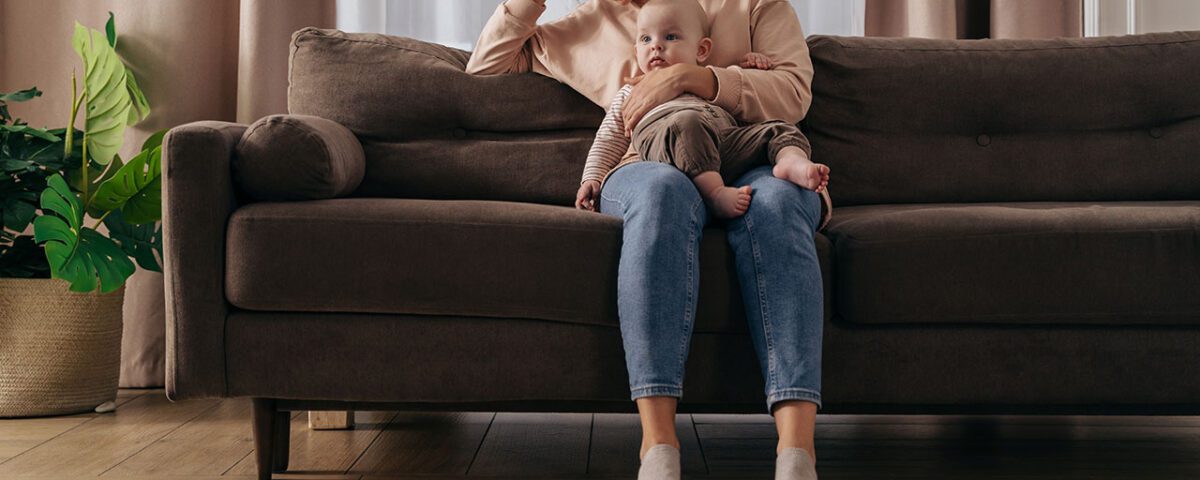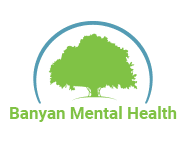


Improving Mental Health in Summer
August 8, 2023

Do I Need Therapy?
August 28, 2023Stay-at-Home Mom Depression: Tips for Coping


While being a stay-at-home mom is rewarding and fulfilling, it also comes with a lot of challenges. Amid the joys and gratification are constant caregiving demands, the feeling of isolation, and the absence of regular adult interactions, all of which can take a toll on mental health. In this article, our mental health experts are diving into the complexities of stay-at-home mom depression, shedding light on its potential causes, symptoms, and coping techniques. Remember, you’re not alone, and there is help available for those facing the many challenges of motherhood.
Causes of Stay-at-Home Mom Depression
Major depressive disorder, or depression, is a mood disorder that negatively affects the way a person feels, thinks, and acts. Depression is characterized by persistent feelings of sadness, hopelessness, and a loss of interest or pleasure in once-enjoyable activities.
This disorder goes beyond normal feelings of sadness or temporary emotional lows and can significantly impact a person’s daily life. Depression can impact anyone regardless of age, gender, or background, and causes can be complex, involving a combination of genetic, biological, and environmental factors.
Stay-at-home mom depression refers to a type of depression that affects mothers who are primarily responsible for caregiving and homemaking duties and who may not have paid employment outside the home. While being a stay-at-home mom can be a fulfilling role, it also comes with unique stressors and challenges that can develop into feelings of anxiety, sadness, and hopelessness.
Common causes of stay-at-home depression include:
- Financial stress: Financial pressure can occur from making a shift from two incomes to one to allow the mother to stay home with the kids.
- Identity changes: The transition from a working professional to a stay-at-home mom can result in a loss of identity and purpose, which can contribute to feelings of depression.
- Lack of recognition: Stay-at-home moms may feel undervalued or underappreciated for their contributions, which can impact their self-esteem and cause feelings of sadness and hopelessness.
- Role overload: Unlike a regular paying job, stay-at-home moms work around the clock to care for their families, and the continuous demands of childcare, household responsibilities, and managing the family's needs can be overwhelming and lead to burnout.
- Social isolation: Many stay-at-home moms only interact with their kids and spouse for the majority of the week. This lack of regular adult interactions and limited opportunities for socialization can lead to loneliness and isolation.
Stay-at-home mom depression shares many characteristics with general depression, such as persistent sadness, loss of interest in once-enjoyable activities, changes in appetite or sleep patterns, and difficulty concentrating. It’s essential for moms experiencing these symptoms to seek support and reach out to healthcare professionals, friends, or family for help.
Treatment options for stay-at-home mom depression may include mental health treatment, support groups, medication, and lifestyle changes to improve the individual’s symptoms. Remember that seeking help is a sign of strength, and with the right support, many can overcome the challenges of being a stay-at-home parent and find greater balance and happiness in their roles.
Stay-at-Home Mom Depression Symptoms
The symptoms of stay-at-home mom depression can manifest similarly to those of major depressive disorder. However, they may be influenced by the unique challenges and stressors that stay-at-home mothers face. Some common symptoms of stay-at-home mom depression include:
- Consistently feeling sad, down, or hopeless
- Loss of interest or pleasure in once-enjoyable activities
- Fatigue and low energy
- Feeling physically drained
- Struggling to complete daily tasks
- Finding it hard to focus, make decisions, or remember things
- Increased or decreased appetite
- Significant weight gain or loss
- Feelings of irritability or anger
- Frequent mood swings
- Feelings of guilt or worthlessness
- Self-blame for perceived shortcomings and flaws
- Feeling inadequate in their role as a mother
- Withdrawal from social interactions, avoiding loved ones, and experiencing feelings of isolation
- Unexplained aches, pains, or other physical complaints that have no clear medical cause
It’s important to recognize that occasionally experiencing some of these symptoms doesn’t necessarily mean someone has depression. Even so, if these symptoms persist for an extended period and interfere with a stay-at-home mom’s ability to function or enjoy life, they might have depression.
If you believe you have depression as a stay-at-home mom or know someone who is, seeking professional help is key to getting better. Our Banyan facilities for mental health offer a wide variety of disorder-specific treatments as well as evidence-based psychotherapy programs to support clients of all backgrounds and occupations.
Stay-at-Home Moms and Depression: How to Cope
Coping with stay-at-home mom depression can be challenging as you navigate taking care of yourself while caring for your family. However, various strategies can help improve your overall well-being. Here are some tips that can help:
- Talk to friends, family members, or other stay-at-home moms for support.
- Join support groups or online communities for stay-at-home moms that can serve as a valuable outlet for sharing experiences and getting advice.
- Make time for yourself regularly, engaging in activities you enjoy, whether it’s reading, exercising, or pursuing a hobby.
- Create a daily routine that balances self-care, household tasks, and time with your children and spouse.
- Don’t put pressure on yourself to be the perfect mom. It’s okay to take breaks and ask for help.
- Socialize regularly with other adults, whether through playdates, social events, or online platforms.
- Seek a therapist or mental health professional if your symptoms worsen.
- Communicate your feelings with your partner and share the responsibilities of parenting and household tasks.
- Consider some form of work, such as a part-time job (if manageable), to give you a sense of purpose and offer engagement outside of the home.
Every individual’s experience with depression is unique, so it’s important to find coping strategies that work well for you and will reduce stress rather than add more to your plate. If your symptoms persist, do not wait to reach out for help.
If you’re a stay-at-home mom with depression or anyone else struggling with mental illness, our depression treatment program can help. Located in various cities and states across the nation, our Banyan Mental Health centers offer individualized care and support to help individuals recover from disorders ranging from depression to schizophrenia.
Call Banyan today at 888-280-4763 or contact us online to learn more about our adult mental health services.
Related Reading:







